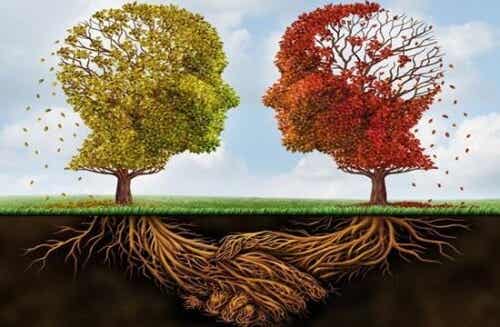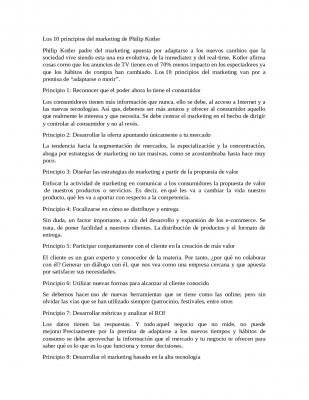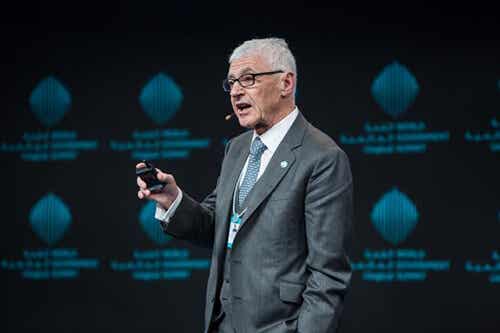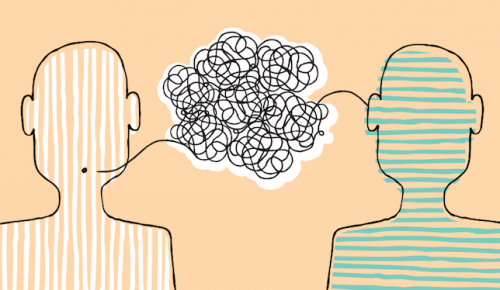
Last update: 16 September, 2019
When we need to consult a psychology professional, we sometimes think that they are all the same and that any one of them will know how to solve our problem. However, in reality there is a big difference among psychologists depending on the field in which they specialize, which determines the type of therapy they will offer to patients.
Just like in other areas of knowledge, such as in law or medicine, it is necessary to choose the psychologist that best suits our needs and our problem. You may be wondering why. Well, because otherwise the therapy may not have the results we need to get.
Types of psychologists
To introduce you to the world of psychology and the fields of specialization that exist, today we want to share with you and show you 10 different types of psychologists. Each of them specializes in a different problem, which means that if you ever need professional help it is convenient to choose the most suitable to solve your problem.
“Know all the theories. Master all techniques. But let another human soul always touch a human soul ”.
-Carl G. Jung-
1. The clinical psychologist
Clinical psychologists specialize in disorders of the mind and emotions that can trigger short-term or long-term crises. They are prepared to deal with almost any problem they face, but again they need to specialize.
For this reason, it is possible to deal with clinical psychologists who specialize in depressive disorders, eating disorders, anxiety, personality disorders, drug addiction, childhood or adolescent problems, etc.
2. The psychotherapist
Psychotherapists are psychologists who are responsible for offering psychological support and teaching a series of techniques aimed at improving the patient's quality of life. Obviously, the problems psychotherapists deal with are not as serious as those faced by clinical psychologists.
What is a psychotherapist specialized in? In everyday problems, conflicts within interpersonal relationships or emotional problems that make a relationship difficult. In addition, psychotherapists know very well how to deal with and manage stress and anxiety which can have negative repercussions on the patient's relationships and daily life.
3. The school psychologist
School psychology deals with the learning processes of students. Usually these psychologists work in educational institutions as counselors or help students suffering from some learning disorder.
Unfortunately, their presence in public schools is less frequent than we would like. They often find themselves working in schools where there are many children who need help but have little time to devote to any of them. Unfortunately, this is the current situation, even if, in many cases, their immediate intervention is essential, since the mission of school psychology is not only to help the child learn, but also to provide him with the necessary resources and teach him to use them to compensate for certain limitations.
4. The neuropsychologist
These are usually researchers, albeit often neuropsychologists develop their professional activity in the field of cognitive, behavioral and emotional rehabilitation of patients who have suffered brain damage. They are also specialists in early diagnosis and treatment for dementia.
This means that their field of specialization is clinical and that they work halfway between psychology and neurology. Their objective focuses on studying the possible alterations that our central nervous system can suffer and how this affects the mental life of the person.
These are alterations that can be triggered by various factors, from a traumatic experience, to a stroke or a tumor. Their greatest allies are neuroimaging techniques and their work is based on the relationship that exists between our physical brain and our mind.
5. The social psychologist
Social psychologists specialize in everything that has to do with human behavior and psychological factors that can have repercussions on the social environment. Their branch of knowledge ranges from interpersonal relationships to themes such as culture, prejudices or the attitudes we adopt towards other people.
They are specialists in creating group therapies and programs that help the most disadvantaged people or minorities who are excluded from society. Thanks to social psychologists, many people manage to reintegrate into society.
6. The work psychologist
That's right, they also exist psychologists who specialize in the workplace and usually work in offices that deal with staff selection, training, occupational health and development. Sometimes, they also work in human resources.
Occupational psychologists are particularly important, as they possess deep knowledge of motivation and leadership, which can help employees who have similar problems in the workplace. They also help improve their performance.
7. The forensic psychologist or criminologist
Forensic psychologists specialize in law and that is why their presence is very important during court hearings. In a certain way, they can guide the judge to deliver the most just sentence, whether for or against the accused.
Among their duties is the responsibility of understanding what led a certain individual to commit the crime or offense of which he is accused. The study of their personality, in fact, will then allow to create the most appropriate therapy for the accused person.
8. The sports psychologist
Sports psychologists are the ones who work with athletes, but also with the coaches and with the entire organizational team of a team. All of this aims to bring out the maximum potential of the team, to make the members more motivated, more effective and to help them manage stress adequately.
The sports psychologist helps athletes have the confidence they need to be able to take their full potential to the limit. He also significantly promotes the self-esteem of the whole team and teaches that limits exist only in their minds.
9. The sexologist
Sexologists are also psychologists, specialists in diagnosing and treating everything that has to do with intimate relationships. Their purpose is to improve the sexual health of the person suffering from problems in this field, whether it is a couple or a single person.
In general terms, we can divide the problems these psychologists deal with into three broad branches: problems related to desire, problems related to arousal, and problems related to orgasm.
Finally, if it is a couple and all organic causes have been discarded, usually sexual problems have to do with other aspects of the couple's interaction. In these cases, it is best to intervene together with a couples therapist who can work in sync with the sexologist.
10. Coaching
Yup, coaches can also be psychologists and work to ensure that each person seeks and finds their own goals, helping her to achieve everything she sets out to achieve. The coach adapts to each individual and acts as a "guide" to help each patient find their way.
"I found the meaning of my life by helping others to find meaning in their lives"
-Vikto E. Frankl-
Are there perhaps more fields of specialization? Of course, there is also canine psychology, psychology applied to video games, marketing psychology, psychology applied to nutrition ... In short, there is a psychologist for each of the needs of our mind.

























